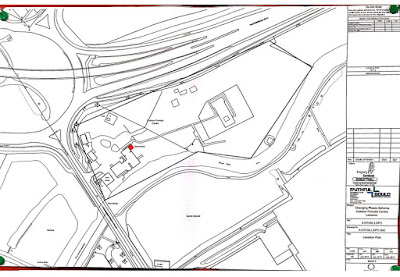Sometimes you just need to change one thing to open up a world of possibility ...
Here at the Leicester Outdoor Pursuits Centre we are having some building work done,
We started work in November building a New Changing Places Toilet that is going to make a difference to so many people who face a daily challenge just leaving their homes.
The Changing Places Consortium launched its campaign in 2006 on behalf of the over 1/4 of a million people who cannot use standard accessible toilets. This includes people with profound and multiple learning disabilities, motor neurone disease, multiple sclerosis, cerebral palsy, as well as older people.
What are Changing Places Toilets?
Standard accessible toilets do not meet the needs of all people with a disability.
People with profound and multiple learning disabilities, as well people with other physical disabilities such as spinal injuries, muscular dystrophy and multiple sclerosis often need extra equipment and space to allow them to use the toilets safely and comfortably. These needs are met by Changing Places toilets.
Each Changing Places toilet provides:
The right equipment
- a height adjustable adult-sized changing bench
- a tracking hoist system, or mobile hoist if this is not possible.
Enough space
- adequate space in the changing area for the disabled person and up to two carers
- a centrally placed toilet with room either side
- a screen or curtain to allow some privacy.
A safe and clean environment
- wide tear off paper roll to cover the bench
- a large waste bin for disposable pads
- a non-slip floor.
Why are Changing Places toilets important?
Thousands of people with profound and multiple learning disabilities, as well other disabilities that severely limit mobility, cannot use standard accessible toilets.
People may be limited in their own mobility so need equipment to help them or may need support from one or two carers to either get on the toilet or to have their continence pad changed.
Standard accessible toilets (or "disabled toilets") do not provide changing benches or hoists and most are too small to accommodate more than one person.
Without Changing Places toilets, the person with disabilities is put at risk, and families are forced to risk their own health and safety by changing their loved one on a toilet floor.
This is dangerous, unhygienic and undignified.
It is now accepted and expected that everyone has a right to live in the community, to move around within it and access all its facilities. Government policy promotes the idea of "community participation" and "active citizenship," but for some people with disabilities the lack of a fully accessible toilet is denying them this right.
Although the numbers are increasing, there are still not enough Changing Places toilets across the country.
Providing these toilets in public places would make a dramatic difference to the lives of thousands of people who desperately need these facilities.
Who are they for?
Research has found that over a quarter of a million severely disabled people, including those with profound and multiple learning disabilities, do not have access to public toilet facilities that meet their needs.
In the UK the number of people who would benefit from a Changing Places toilet would include approximately:
- 40,000 people with profound and multiple learning disabilities
- 130,000 older people
- 30,000 people with cerebral palsy
- 13,000 people with an acquired brain injury
- 8,500 people with Multiple Sclerosis
- 8,000 people with Spina Bifida
- 500 people with Motor Neurone Disease
We also know that the number of people with complex disabilities is growing – we are all living longer, meaning many more people are likely to need access to a Changing Places toilet in the future.
These figures come from a report by Professor James Hogg, at the University of Dundee.
The work was completed at the beginning of March 2017.
For more information about
Leicester Outdoor Pursuits Centre.
For more information about
Changing Places

























